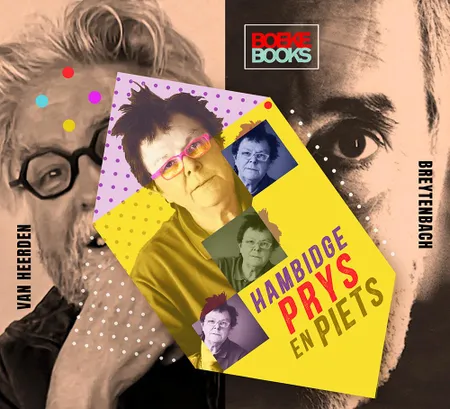I
In magical realism, there is always a narrator in whom imagination is strikingly present, with impossible journeys between places and history. The journeys can be astral or real. In South American literature, it is strongly connected to the Roman Catholic Church and we find crosses and flowers for loved ones along the way. The breaking down of boundaries is striking in these texts. Visiting Machu Picchu, one wonders who did or could build this city?
Lees hierdie artikel in Afrikaans:
II
“Some of the references are sure to be overly private for the eventual readers. But I am now writing in the first instance to try to remember for myself. You've been warned — it's a notebook! If you have the meat, I'll bring the bones.”
— Breyten Breytenbach in A Season in Paradise (1976).
Within Afrikaans literature, Etienne van Heerden's novels are often magical-realistic. Toorberg converses with Gabriel García Márquez's 100 Years of Solitude. His latest novel is Gebeente (Tafelberg). Here's how it is marketed:
With an unexpected train, Magistrate Imker Goedeman arrives at Gebeente, a small town on the Forgotten Great Road north of Sutherland. The area has been shaken by a sensational farm murder, but an even more complex case must be investigated: the theft of the Milky Way. We are here in the realm of improbabilities, and finally, the entire legal system is challenged. History, myth, allegory and magical realism are charmingly interwoven in this captivating novel.
The impossible takes place and the name of the place is Gebeente. Similarly, we find the name change in Márquez: Macondo versus Aracataca.
Farm murders (the reality of our day) versus the theft of the Milky Way (the impossible).
The legal system is challenged here and handled in a kind of collective, almost Old Testament way.
In the Bible, one also finds the unheard: a dead man made alive; an ear that grows after it is cut off; the multiplication of fish and loaves…
III
Is there such a thing as magical realism in poetry? Or just surrealism?
Or are poets always pushing the boundaries?
In the work of Breyten Breytenbach, we constantly find boundary shifts or transitions. In this poem, from 2010, there is a nod to Borges.
Breytenbach is the master of astonishing images. Also, of the so-called paraprosdokian, aka a figure of speech with a strange or unexpected turn that forces you to look at everything anew.
*
Klein reis: 27 Okt. – 1 Nov.
“Memory, says Borges, is very much like forgetfulness.
It comes into and fades from focus.” – Ben Tery
die dood moet soos 'n voëltjie wees
wanneer aandlig daal om die breë vloei
van die rivier in donkerwordende goud te doop,
en die voëltjie val
en dryf in 'n nag van sterre
*
Op die platteland in België
Het ek deur die treinvenster
Gesien hoe mooi en fleurig
Getooi 'n begraafplaas is.
Asof dit liefdevol soos
'n Groentetuin bewerk word.
En waarom sou vleesakkers
Nie groentetuine en blomtuine
Wees nie? Die behoefte
Aan voedsel en aan skoonheid
Word al hoe groter
En die messtof en toegewyde
Aandag is dáár.
*
plant bome, struike, dié wat vinnig groei
om die grond waar ons asse en ander weggooi
begrawe lê die skyn van vastigheid te gee
ons gly so maklik weg in die vergetelheid
maak die paaie wyer as dit moet
dis goed dat mense op en neer kan loop
maar bou 'n heining of span 'n draad
óm daardie walle waar ons beendere
soms glinsterend uit die aardkors breek
sodat verbygangers na die toekoms
nie hulle voete sal sny met sterfskerwe nie
trek vir hulle spoggerige klere aan
geel baadjies, onderrokke met kant
om die naaktheid te bedek
terwyl hulle hier op en neer loop
asof niks ooit gebeur het nie
en alles vir altyd aan sal hou
*
paraprosdokian – a phrase or a sentence that leads us down a garden path to an unexpected ending
© Breyten Breytenbach. November 2010
From: Versindaba.
óm daardie walle waar ons beendere
soms glinsterend uit die aardkors breek
Thus writes the poet. From the stars, back to Belgium, to the world of fantasy (via Borges) where the possible and impossible journeys are reconciled. Also, the conversations between writers here and on different continents.
♦ VWB ♦
BE PART OF THE CONVERSATION: Go to the bottom of this page to share your opinion. We look forward to hearing from you.




To comment on this article, register (it's fast and free) or log in.
First read Vrye Weekblad's Comment Policy before commenting.